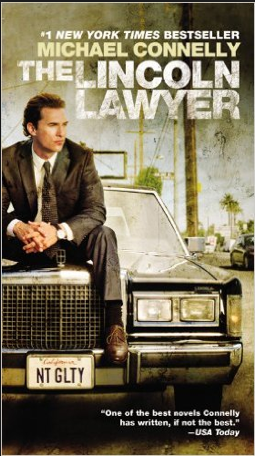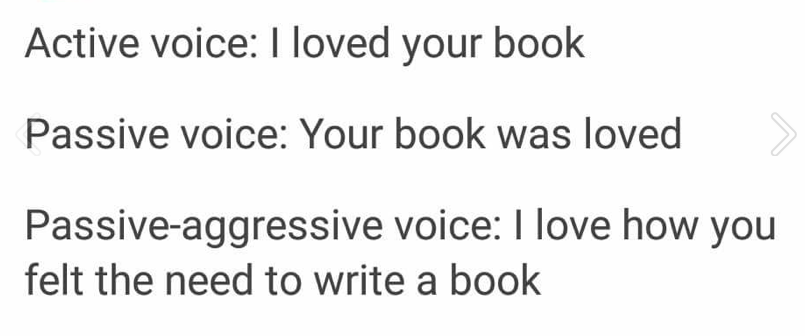
If you’ve been writing any amount of time you’ve been there—STUCK. Stuck is the place we never want to be, but goes with the job.
Every writer at one time or another has experienced the literary doldrums. We hit a spot that, no matter how hard we try, we just cannot seem to move our story forward. Every word we write feels like pulling frogs’ teeth and we wonder why we ever thought writing a novel was a good idea.
Some call this ‘writer’s block’ while others claim ‘they’re only in a dry season’ or ‘going through a rough patch.’ Regardless what name we give this feeling, it all feels a heck of a lot like being STUCK.
Many writers, particularly new writers, see being stuck as a sign that they may be writing in the wrong genre. When they get stuck, this is a perfect opportunity to start working on something NEW. Story gets stuck, and this is SURELY divine evidence that the book really should have been a SERIES, not a standalone or a standalone and not a series.
Whatever.
From personal experience combined with my experience with thousands of writers the process from Start to Stuck can look like this.
Zoom to DOOM
Shiny Idea Time—You get the coolest idea ever conceived of and cannot believe such genius has never before been put to the page. It’s as if angels have come down and handed you a golden feather that will whisk you to the realms of literary nirvana.
First 20K Words—You’re flying high. You wonder why you ever had such difficulty with word count before. You cannot stop the flow. Perhaps you forget to eat, don’t want to sleep and you even dream of the world you’re creating.
20K-30K—This is when the pace begins to slow. It’s okay though. Perhaps you’re simply tired. It’s okay. This…THIS is the story idea you’ve been waiting for.
31K—Your pace slows dramatically. If you’ve ever been driving and suddenly had a flat tire? You know the feeling only this is in the brain-fingetips connection. There is a THWUMP, THWUMP, THWUMP…and your mental steering wheel jerks wildly. You might try to ignore, but eventually? You pull over to see what’s wrong.
But then? Nothing seems wrong. That’s weird. Mental tires all look properly aired. Maybe more caffeine is in order.

Perhaps you make it to 40K but by then? All the glitter is gone and you wonder what the hell happened. At this point, you likely will be visited by other story ideas. They see you on the side of the creative highway bewildered and seeming to need a ride. Though you don’t yet have your thumb out, these other newer and shinier ideas are quick to pull over and chirp, ‘Hop in!’
Just abandon that old clunker and GO!
It’s all so tempting. Especially since the longer you stay trying to fix your broken down WIP, the more shiny ideas come passing by.
When you started your journey, the road was free and clear for you to floor your brain and write like the wind! Now? You can barely concentrate on where you placed your mental jack because temptation whizzes by every other minute.
I think this is a fairly accurate prediction regarding word count. If it weren’t accurate, then NaNoWriMo would be easy peasy. But, alas, there is something about making it to 50K. It’s a number that leaves most who attempt such a feat broken down wondering what went wrong.

Image vis Flickr Creative Commons, courtesy of Yuya Sekiguchi.
Before you call a tow truck for the WIP and sell it for parts, I’d like to offer you some insight and maybe even some solutions to get you speeding down the Imagination Express once more.
Problem #1—Stuck Because the Antagonist is Weak or Nonexistent
After years of working with writers, it became clear to me that many didn’t understand—truly understand—the antagonist. It doesn’t help that a lot of existent teaching on the subject can be terribly confusing.
I’ve sat through craft classes where instructors used the term ‘antagonist’ and ‘villain’ interchangeably as if the terms were synonymous, but that is grossly inaccurate.
A villain is only ONE TYPE of antagonist.
All stories must have a strong core antagonist, because the antagonist (BBT) is responsible for the story problem.
No antagonist, no story problem in need of solving. Too often, new writers spend an inordinate amount of time thinking about the hero and don’t give near enough thought to the opposition.
To be fair though, the whole ‘antagonist’ concept was slippery even to me. I had to INVENT my own term—Big Boss Troublemaker—to make the amorphous concept of the story’s central antagonistic force more concrete.
Yes, there should be an antagonist on every page, but the ‘antagonist’ is, simply, any character standing in the way of the MC’s goal. Pushback.
While allies and love interests and even unnamed characters might wear the ‘antagonist’ hat for a spell, they’re not responsible for the core problem in need of resolution. The BBT supplies this.
Problem #2—Stuck Because the Plot Weak or Nonexistent
If a writer has failed to understand the antagonist (opposition) and truly know what this opposing force wants then the plot will simply disintegrate. When we’re crafting any work, we have to create a problem that is strong enough to bear the weight of the word count.
For instance, I’ve consulted many writers who had an excellent idea…for a short story. The problem was inherently too weak to sustain the bulk of a full-length novel.
Instead of plowing forward, often we can make some really simple adjustments to buttress that core idea. But if we don’t? It’s like trying to drive 90 mph pulling a crappy trailer. The wheels eventually WILL go flying off.
Often when we’re stuck, it’s the subconscious mind hitting the breaks. It’s trying to tell us our plot needs to be more robust or even clarified, which dovetails into my next point…
Problem #3—Stuck Because Too Many Ideas are Crammed into One Book
Some writers might not have enough heft to the plot and others? Perhaps you’re loading on far too much. It’s not uncommon for me to talk to writers who are jammed up in a bad way only to find out they are trying to develop five ideas in one book.
Since the author failed to articulate what the book was about in ONE sentence (truly understand the BBT’s agenda), then the author was at liberty to explore whatever cool rabbit trail presented itself.
This isn’t particularly bad, but it does require we STOP, get focused and maybe tease out those other ideas for subsequent books. You might think you only have one book, when you have two others freeloading and bogging down your momentum.
Problem #4—Stuck Because We’ve Chosen the Wrong Protagonist
Casting the wrong protagonist is really easy to do, especially if we failed to properly develop the antagonist. Remember at the core of most great stories is an antagonist who’s essentially the shadow self of the protagonist.
For instance, in The Lincoln Lawyer Mickey Haller is a sleaze bag defense attorney. He represents drug dealers, pimps, prostitutes, and gang members. He has grown jaded with the justice system and prides himself on his ability to manipulate.

His greatest fear is representing a truly innocent man. What is the perfect story problem for such a character? Present him with an irresistible case that tosses him into what he fears the most.
Representing a truly innocent man.
This means that Connelly had to create a crime (case) where the client would undoubtedly look guilty and who would have enough cash to make Haller question any misgivings about taking on the case. Without a case where an innocent man is involved? The Lincoln Lawyer falls apart at the seams.
If Connelly had cast a lawyer who was all about truth, justice and the American Way? The plot would have been meh.
An attorney who works pro bono searching for truth is expected to risk everything to save the life of an innocent man. This would have been the wrong protagonist to cast for such a plot.
Fiction is the path of greatest resistance and Connelly, being a master, cast the one guy who probably would have run screaming from this case had he know was he was in for.
If your story seems to be sagging, check and make sure you’ve slated the right person for the job. Sometimes some quick fixes to who this character is or even giving that character some additional baggage might be enough to get you unstuck.
Problem #5—Stuck Because We Are Just Over Thinking

STOP IT! This is the one I am most guilty of. It’s why I am a HUGE fan of fast-drafting because then we simply don’t have time to over think every step we’ve made.
All writers have two different phases:
Oh! Wow! I wrote that!
Oh, wow…I wrote that.
We all think we’re geniuses…only to later read the exact same section and become convinced we are little more than brain-damaged spider monkeys banging away on a keyboard.
It happens, especially when we are in the thick of the story. It is tempting to go back and perfect, but resist the urge to go BACK. Feel free to correct typos or make notes (in a different color) but do not change your writing.
Your subconscious could be planting seeds and what looks like a weed might just be the greatest plot-twist EVER germinating. Just leave it alone and stop being so hard on yourself.
Remember, no unfinished-but-perfect book has ever hit the New York Times best-seller list, but a lot of crappy finished ones have 😉 .
Truthfully, if you finish and just cut yourself a break you will likely go back to those parts you were going to chop and see they aren’t nearly as bad as you’d imagined. Remember that while your subconscious is there to help you? Your ego is a selfish passive-aggressive diva who can’t stand that something might be prettier than she is.

You really want to be hard on yourself? Fine, just do it in the correct places. Instead of nitpicking the life out of your prose? Get your @$$ in the seat and keep pressing.
Tips to Push Through
Right now, I hear the gnashing of teeth. Great, Kristen, we now know WHY we are stuck. A little help to get un-stuck? Sure. I can give y’all a couple tips.
1) Resist the urge to edit.
New writers are especially bad at looking back and perfecting the beginning. This is a BAD habit. For the sake of brevity, I recommend reading my post The Dangers of Premature Editing: Pruning Our Stories vs. Pillaging Them.
2) Learn to fast draft.
Fast drafting might not be for everyone, BUT I will say that if you’ve never tried it and you have a stack of unfinished ‘novels,’ what can it hurt to give it a try? What’s the worst thing that will happen? You’ll add one more unfinished novel to the pile?
I’m a huge fan of fast draft.
Candy Havens teaches this technique, and it works. Write your novel in two weeks a month, whatever, but write fast and furious. No looking back. Always forward. You can fix stuff later.
I’ve heard some writers criticize this method, believing that writing at this increased pace somehow compromises quality. Many writers are afraid that picking up speed will somehow undermine craftsmanship, yet this isn’t necessarily so.
To prove my point, here are some interesting factoids about writing hard and fast, some taken from James Scott Bell’s WONDERFUL book The Art of War for Writers (pages 79-82):
- William Faulkner wrote As I Lay Dying in six weeks.
- Ernest Hemingway wrote The Sun Also Rises in six weeks.
- John D. MacDonald wrote The Executioners in a month after a fellow writer mocked him that writing so quickly created only junk. Simon & Schuster published it in hardback. It was also serialized in a magazine, selected by a book club, and turned into the movie Cape Fear TWICE.
- Ray Bradbury wrote Fahrenheit 451 in nine days on a rented typewriter.
- Isaac Asimov was the author/editor of over 700 books over the course of his career.
- Stephen King writes 1,500 words a day every day of the year except his birthday. King has written fifty-nine novels and over two hundred short stories.
Speaking of Stephen King, this brings me to my third tip for getting unstuck…
3) Kill someone.
IN YOUR WIP! Jeez, do I need a legal disclaimer here?
Yes, when our WIP stalls, a great way to slip free is by liberally applying imaginary blood and the tears of those who mourn.
Granted, this might be weird if you write kid books. But, give it a try anyway 😛 .
One MAJOR reason so many stories stall is because new writers have yet to hone the art of being a total sociopath. They’re afraid of grit and mess, so their ‘novel’ is far too sanitized (code for BORING).
Have a favorite supporting character you love, your mom loves, and your writing group adores? FANTASTIC!
Now go kill that character.
#YouWillThankMeLater
*smooch*
What Are Your Thoughts?
Does the pattern I spelled out in the beginning feel far too familiar? You are off like you’re mainlining jet fuel only to sputter out and DIE? Are you being too nice to your characters? I love hearing your thoughts, tips, struggles (and I reward those who comment).
There are a lot of ways to break out of this pattern. Sometimes though, you may need a tow (pro).
Generally, a pro can spot all your weaknesses (and strengths) in twenty pages, but what do we see? Why is the story starting out strong only to fizzle and fall apart?
Currently, I’m running my ‘Write Stuff Special’ and there are a few slots left, but they go quickly so get your spot HERE.
Other than that…
I love hearing from you!
What do you WIN? For the month of September, for everyone who leaves a comment, I will put your name in a hat. If you comment and link back to my blog on your blog, you get your name in the hat twice. What do you win? The unvarnished truth from yours truly. I will pick a winner once a month and it will be a critique of the first 20 pages of your novel, or your query letter, or your synopsis (5 pages or less).
***I will announce August’s winner next time I post.
Upcoming Classes for August & September
 Brand Boss: When Your Name Alone Can Sell
Brand Boss: When Your Name Alone Can Sell
Instructor: Kristen Lamb
Price: General Admission $55.00 USD/ GOLD Level $175
Where: W.A.N.A. Digital Classroom
When: Thursday, Thursday September 13th, 2018. 7:00-9:00 p.m. EST
REGISTER HERE

Building Planet X: Out-of-This-World-Building for Speculative Fiction
Instructor: Cait Reynolds
Price: $55.00 USD
Where: W.A.N.A. Digital Classroom
When: Saturday, September 8th, 2018. 10:00 a.m.—12:00 p.m. EST
REGISTER HERE

Populating Planet X: Creating Realistic, Relatable Characters in Speculative Fiction
Instructors: Cait Reynolds & Kristen Lamb
Price: $55.00 USD
Where: W.A.N.A. Digital Classroom
When: Saturday, September 8th, 2018. 1:00—3:00 p.m. EST
REGISTER HERE
 Beyond Planet X: Mastering Speculative Fiction
Beyond Planet X: Mastering Speculative Fiction
Instructor: Kristen Lamb
Price: $55.00 USD
Where: W.A.N.A. Digital Classroom
When: Saturday, September 8th, 2018. 4:00—6:00 p.m. EST
REGISTER HERE

The XXX Files: The Planet X Speculative Fiction 3-Class Bundle
Instructors: Cait Reynolds & Kristen Lamb
Price: $110.00 USD (It’s LITERALLY one class FREE!)
Where: W.A.N.A. Digital Classroom
When: Saturday, September 8th, 2018. 10:00 a.m.—6:00 p.m. EST.
REGISTER HERE
Purchase includes FREE recording of all three classes.

Keywordpalooza: Tune in, mellow out, and learn to love keywords for Amazon
Instructor: Cait Reynolds
Price: $55.00 USD
Where: W.A.N.A. Digital Classroom
When: Friday, September 7, 2018. 7:00—9:00 p.m. EST

 Brand Boss: When Your Name Alone Can Sell
Brand Boss: When Your Name Alone Can Sell Beyond Planet X: Mastering Speculative Fiction
Beyond Planet X: Mastering Speculative Fiction






23 comments
2 pings
Skip to comment form
Another excellent post, KL. Thank you. Will repost to my TFeed.
You just made my story. I’m going to kill off the man that my protagonist
loves. If that doesn’t leave my readers in tears, nothing will. Thanks.
I feel like this post was written specifically for me! Wait, there is that diva, the ego.
But seriously, I can see a few points that I’ve been missing in my own writing. It is helpful to be reminded by focus on the antagonist. As I think about my current WIP, I feel like that character is definitely lacking some attention. Her contrast with the protagonist is falling short. Things that make you go “hmmmm…”
My stuck has been life chaos. It’s hard to write when your life is circling the drain. I had almost 2 years of that, which is why the fifth book is just over a year later than planned (my process is a year, max).
Now I’ve gotten back to it and yeah, I will vouch for killing someone off. I’ve done it a couple of times in the series and 5 is going to have a doozy. I may just be your sociopath, I kinda like killing characters off, it just flows with the blood. Not to the “George R.R. Martin” standard but yeah, blood and tears.
I need to go write, we’re headed toward the solution to book 4’s ending, one like the other books where I leave it just at THAT point, sadistic sociopath that I am.
Great column as usual. Love it.
Yep, 30,000. I’ve got two NaNoWriMo starters, but my official excuse was that I literally picked up fevers both times. But no, never finished them. My current WIP suffered from problem #2 until recently.
In all honesty I have 2 legitimate excuses for revisiting my current WIP. I had to revamp the beginning to enter it into the Zebulon contest (Pike’s Peak Writer’s Conference). I placed third 😀 Then I had to put it away for a while due to illness so I read through what I’d written to re-familiarize myself with it. Otherwise, yes, I’m hoping to avoid fevers this November because I want to finally complete a fast draft.
Good stuff! That list of fast-drafted books is very inspiring.
I generally grind to a halt around 30K words, but this time I killed off three characters (though one stubbornly refused to stay dead) and things are just zipping along. Blood is clearly underrated as a lubricant for the machine of story 🙂
Wow, Kristen, you could repost this blog every other week. It’s me all over. Geez, worked so hard to be a nice person only to find it gets me in trouble . . . at the computer anyway. Who knows where else.
Thanks so much!
So much truth in this post I found my self laughing and nodding. One of the things that completely stops me cold in my writing process is when I know there is a concept problem that has to be solved, and I haven’t figured it out to the point I’m 100% ok with it. Usually it’s because I’ve made the MC do something stupid (bad writer, no cookie!)
Great post.
All good stuff, Kristen. The one standout sentence for me was “Often when we’re stuck, it’s the subconscious mind hitting the brakes.” That was a huge “Aha” moment for me a couple of years ago. I also found many more reasons why your subconscious mind might want to torpedo your efforts – not knowing your characters well enough, plot, but also things like setting and other aspects of the story. Feeling stuck, IMO, is a sign that something is not clear. The trick is to work out what that something is.
Fast draft. I have never heard it called that before, but that is my technique. Granted, it usually takes me 6 weeks because of the full time job and family. And yes, the first draft is really rough. And skeletal. But the more I do it, the better they become.
And yes, I am too nice to my characters sometimes. But I’m romance writer.
Thanks, Kristen. Once again, you’ve given me a nugget of wisdom. You may not always know how many people’s lives you can make a difference in, but in sharing your advice and showing us how to laugh at ourselves through this journey of becoming a published author, you’ve become a respected mentor. And after today’s post, I’m going to go kill off a supporting character! (ha, ha, evil laugh!)
Kristen, I adore you.
Author
LOL. I adore you too!
I’m way late to the party here, still slogging through jet lag and post-vacation reentry, but reading this post was like applying some lovely astringent toner to my sagging eyelids — refreshing and clarifying. Enormous thanks for the inspirational kick in the @$$ as well as for the laughs (that meme about passive/active/passive-agressive voice — PRICELESS).
Pushing threw is important. But before you start hog wild on any idea, develop the idea first and also develop the characters before you start while you’re at it. Lay out a plot, story problems, conflicts, and sub plots then there is no getting stuck. Know what your character must do and learn to do, to win the day. If you know where the story must go it’s really just a matter of butt in chair. Pantsing is for people that like to rewrite over and over to find the story. It’s better to know the story before you write it so that you’ll know if it’s worth while.
I needed this today. I have been stuck just getting material for my blog and haven’t touched my book in a long long time. I can take a lot away from this and hopefully see some results soon!
Oh, my, yes! After succeeding at NaNoWriMo for the first time last year (over 58k words written that month), I’m now a believer in the fast draft. It was so freeing to just get the thing written! You’ve made so many great points in this post. Thank you! I know I’ll be referring back here when I find myself getting stuck.
How about an outline?
That works for me!
Killing a character. Yup! That’s the ticket. I did that… but still got stymied and stalled for almost a year. I had a killer but somehow the “theme” just wouldn’t fly, especially with the readers. So, a revamp. Still, I needed a killer. Killing was easy. Who killed was the issue. I found a new killer but wasn’t thrilled – it seemed so banal and overused. Finally found my killer and suddenly the creative juices flowed. I know who killed my character. I know how my character got killed. And, I almost have the why my character was killed. Again, creativity to the rescue. Didn’t see it coming and I figure, if I didn’t, most likely the readers won’t either. It took some time but the story is almost done. Your theory – kill somebody is a great fix. Great post.
Absolutely loved this post! You just seem to hit a number of issues right on target and many of them which affect me and my writing. The tip about fast drafting was a great one as something I continually do is write so much then flip back and edit. Now I realise I just need to forge on ahead no matter what. Great post!
Yup, that old feeling of being stuck. The problem is I don’t even take my own advice, let alone the excellent advice you’ve given in this post. “Keep writing!” I got a bit stuck about halfway through the first half of the book, and wisely ignored the problems and kept writing. But for some reason when it came to Stuckness Mark II I got all in a tizz and decided to go back and change the main protagonist to a different character, and did lots of attempts at outlining (which I’m not good at if I haven’t already done lots of drafting) and all the other usual excuses for not persevering. Told myself I didn’t know what to do next. SO??
Now I need to take your advice, and mine, and just get writing. The only way to know what might happen, and what shouldn’t happen, is to ignore all my inner critics (about fifty of them at last count) and just write. The best ideas come out of that pushing forward stage – for me, anyway.
I’m writing my first piece of fiction, and I had already decided to kill off a character (even though the book is a Christmas romance). I think it was subconsciously because of reading your posts a long time ago where you told me that killing someone was a good idea!
So you get credit for Character C’s demise. 🙂
Thanks for another great post. I get SO much value from your experience and generosity. And you always make me laugh. <3
Useful and to the point. THanks
[…] https://authorkristenlamb.com/2018/09/stuck/ […]
[…] Working on your story? Harrison Demchick presents five crucial tips for convincing action scenes, James Scott Bell goes into how to give your readers unforgettable moments, and BookRiot‘s Katherine Marciniak asks: cliffhangers: is the suspense worth it? Also, Kristen Lamb lays out 5 reasons your story is breaking down. […]